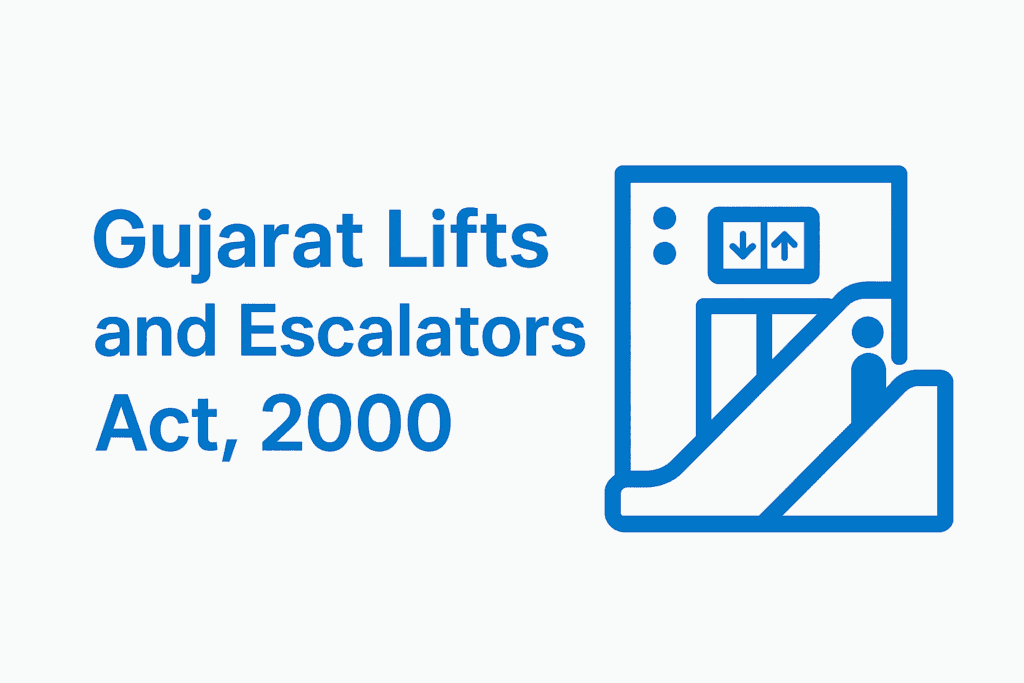(Read with Gujrat Lift and Escalators Rules, 2001)

What is the Gujarat Lifts and Escalators Act, 2000?
This is a state law passed by the Government of Gujarat in the year 2000 to consolidate laws relating to regulation of the construction; maintenance and safe operating of lifts and escalators and the machinery and apparatus pertaining thereto in the State of Gujarat.
Purpose of the Act
The Act was introduced to:
Various compliances required under Gujrat Lift and Escalators Act, 2000 read with Gujrat Lift and Escalators Rule, 2001 are as under:
Penalty for non-compliance:
Disclaimer: The information contained in this Article is intended solely for personal non-commercial use of the user who accepts full responsibility of its use. The information in the article is general in nature and should not be considered to be legal, tax, accounting, consulting or any other professional advice. We make no representation or warranty of any kind, express or implied regarding the accuracy, adequacy, reliability or completeness of any information on our page/article.